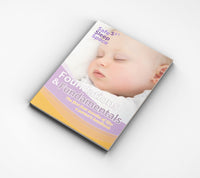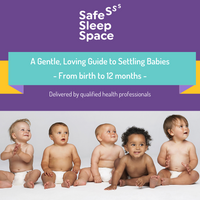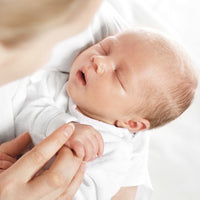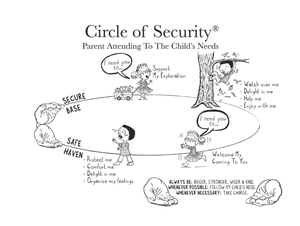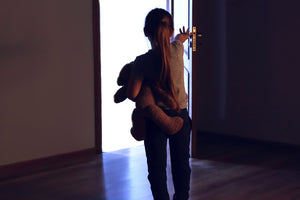Sleep Tip 1 - Understanding our Babies and Sleep

Baby sleep disturbances can be a result of many factors but whatever the cause, the impact on babies and families can be enormous.
Below are some helpful tips from our Expert Clinical team at Safe Sleep Space to assist you if your baby is unsettled
- Firstly – you are not on your own! 40% of all babies and toddlers experience sleep issues. We don’t like to call it a problem – it’s a challenge and most often something that parents and carers can easily work towards changing.
- The most important part of a child’s environment is the loving and caring relationships they are involved in – relationships with their parents, carers or the educators they may interact with on a daily basis.
- The first three years of life are a period of incredible growth in all areas of a baby’s development. The human brain begins forming just three weeks after conception but in many ways brain development is a lifelong project. This is because the same events that shape the brain during development are also responsible for storing information, new skills and memories throughout life.
- It’s so important to look, listen and think about what might be going on for our babies and children and respond to their cues and behaviours. But remember, babies have a slower transmission of nerve impulses, which can present as a small lag time when they respond, so just be patient and wait.
- Unsettled infant behaviour is very common during the first few months after birth. Around 15–35% of parents state that their baby's sleep is a problem, with concerns typically focused on frequent night waking and/or difficulties initiating sleep.
- It’s normal for babies and children to have periods of time when they sleep and settle more easily. For no apparent reason they may tend to fall asleep without too much fuss, sleep for reasonable lengths of time and are happy when they wake up. Then, something happens and all that lovely predictability just disappears.
- We must always remember that infants waking at night to feed is biologically normal, and it may be several months before sleep consolidates into longer and more settled periods.
- We also know that most babies go through a peak of unsettledness between the ages of 6-12 weeks. Many researchers believe this is because a young baby’s nervous system is immature. Crying is one way for them to let off steam and a way of “de-stressing”. This does not mean we leave our babies to cry but rather offer them comfort and support.
- Some babies are particularly unsettled in the first few months and need a lot of continuous soothing and reassurance from their parents. But this improves; just stay well engaged with your healthcare professional who will support you and offer you guidance throughout this time. Any medical concerns should always be investigated and treated of course.
- We know that consistency and persistence is important. Change is not quick and it can take parents and children weeks to learn new skills in settling.
- When it comes to sleep, understanding how our babies communicate is vital. A baby’s cry triggers a caregiver’s internal response, making us act on the baby’s needs. Who isn’t affected by the sound of a baby crying? Knowing the types of cries an infant gives us and responding is also so key to helping an infant settle to sleep.
Key things to remember ….
- The sleep needs of babies change across time and vary from child to child.
- The environments we provide for babies and toddlers influence their sleep and rest.
- Providing safe, predictable, and calm environments are important to support sleep.
- Babies and toddlers need adults to identify and be responsive to their sleep cues.
Reach out and use your supports and most of all be kind to yourselves …it will get better!
Need more help? Check out our Sleep Consultations [here] or our App Rockabub [here] or stay informed on our Facebook page
This article was written by Cindy Davenport, Clinical Director, MCHN, RN, Safe Sleep Space
